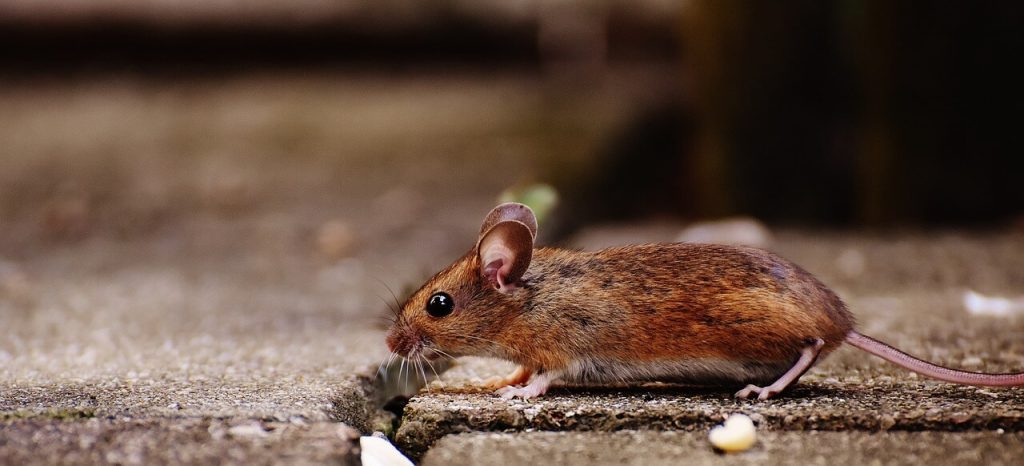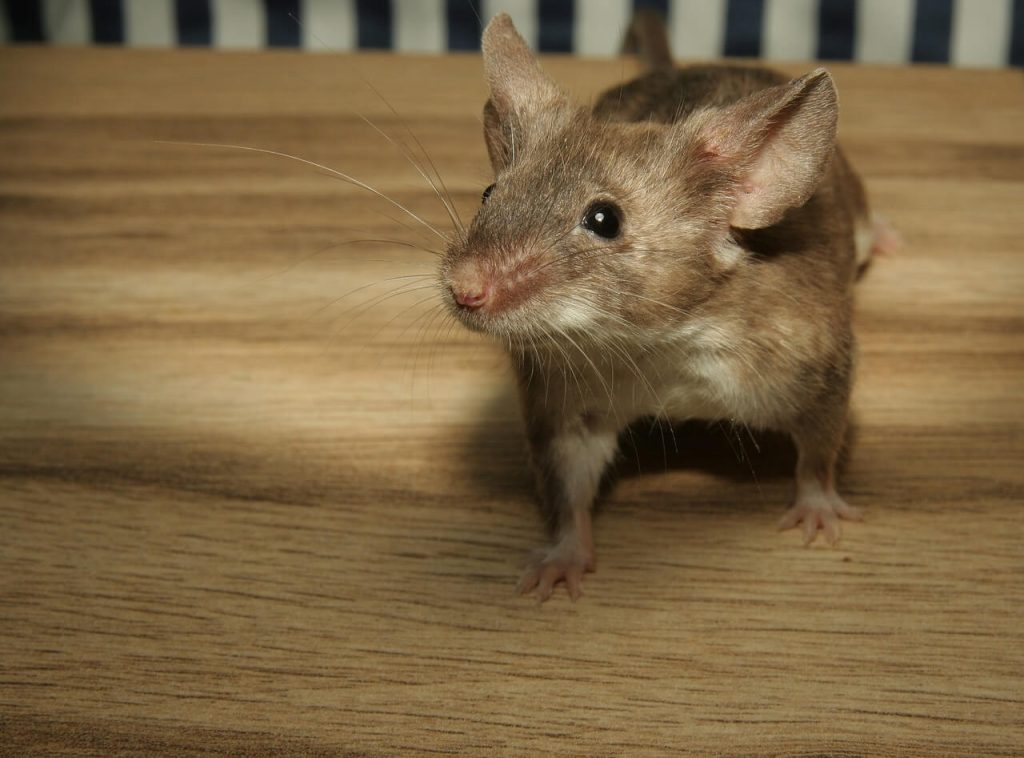If you are reading this, chances are, you have observed signs that a rodent has made its way into your attic. These include hearing scratching and squeaking, observing decal droppings, and even seeing shredded paper pieces and damaged cardboard. At first, it can be difficult to know whether you have rats or mice in the attic. Here, you will learn how to spot the difference, how the rodents make their way into your home, and how to eliminate the infestation.

Do I Have Rats or Mice in My Attic?
If you have not physically observed the rodents in your home, you will have to listen and observe carefully to determine if you have rats or mice. Rats are larger than mice. When they scurry, it is loud. When they gnaw, it is loud. When they make a mess, it is bigger. Mice will scratch and nibble quietly. They are more likely to squeak. The entry and exit points for mice are much smaller than those of rats.
How Do Mice Get into the Home?
Mice typically enter the home through small gaps. These are on the exterior walls and allow access to the interior walls. Examples of these gaps include those around pipes that run into the home and those around dryer vents. Mice only need an opening the size of a dime.
Why Do Mice Enter Homes?
Mice enter homes to escape extreme outdoor temperatures and weather conditions. They also get into homes in order to seek out shelter, food sources, and water. They may also enter into a home in order to build a nest for breeding purposes.
Are Mice Destructive to Homes?
Once mice enter the home, they may be very destructive. These pests have front teeth that constantly grow. As a result, they chew continuously. Once inside of the home, they may gnaw on drywall, framing, pipes, and wires. If the rodents chew on the wires, they put the structure at risk for catching fire.
In addition to the above, the urine and fecal matter from mice may damage a home, too. This is dangerous as it can soak through structural components – such as drywall – and damage it. Plus, mice carry infectious diseases. These may infect cats, dogs, and other pets. Additionally, these diseases may detrimentally impact the health of humans.

Why Are Mice Attracted to Attics?
In most instances, mice are attracted to attic spaces because it is the easiest way to access the interior of the home. Secondly, mice will often enter an attic in search of warmth. During the winter months, heat rises. This results in increased heat inside the attic space. Plus, because there is little to no regular activity in the attic area, mice develop a sense of safety in the area.
Once in the attic, mice will often find spaces that are ideal for nesting and living. Examples include boxes, old paper, and other items that you leave in storage. If you store holiday decorations in the attic, they may find tidbits of edible treats around those items. Furthermore, they can use components of those decorations to create suitable habitats for themselves.
The next reason mice are attracted to attic spaces is the insulation. While irritating to humans and pets, rodents will actually use insulation to create nests. They may easily create tunnels through the insulation in order to make their way into other areas of the home through the wall voids. Best of all, they can move through insulation virtually unnoticed – which they prefer.
What are the Signs That Mice are in the Attic?
If you do not frequent your attic space too often, the first sign that there are mice there will be the noise. Being that the mice are mostly nocturnal, you will hear noise at night. It may come from the attic or from within the walls of the house. You will hear scrambling, scratching, and probably a little squeaking. By the time you hear the noise, the mice will likely be visiting other areas of your home.
You may then observe mouse droppings. Once you start to notice this, take a look around. Look in hard to reach and see spaces. Before too long, you are likely to find nests. These may include an assortment of materials that are matted down. If you see this, it is time to inspect the attic. Here, you will likely smell the odor of urine, see droppings, and see materials – such as paper and cardboard – shredded.
How Do I Stop Rodents from Getting into My House?
There are many steps that you may take to help in stopping rodents from getting into your house. These include – but are not limited to – the following:
- First, inspect your home from the outside, in. If you see any holes or gaps – regardless of size – seal them. Pay special attention to eaves, vents, plumbing access points, window frames, door frames, and other areas. Before sealing the holes or gaps, stuff them with steel wool. Alternatively, you may cover with wire mesh.
- Next, check out all of the pipes, faucets, and other plumbing fixtures on the exterior and interior of the home. If you find any leaks, fix them immediately. In doing so, you are removing a hydration source for the rodents. If water is no longer available, they will be forced to go somewhere else to find water.
- Do not leave pet water or food bowls outdoors. When feeding indoors, seal all pet food in airtight containers. When your pets are done with their food, empty out their food bowls. If food is left out, rodents may smell it and attempt to make their way to it. Do not empty out water bowls left indoors for your pets. The animals should have access to water at all times. Yes, it is risky to leave it out as rodents may be attracted to it, but it is dangerous to not allow your pets access to hydration.
- You should make sure that your kitchen is thoroughly cleaned at all times. There should not be any crumbs left out anywhere in the room. The counters should be cleaned thoroughly and the floor should be kept clean. Food kept in pantry should be stored in airtight containers. Bread should be kept sealed inside of a bread container or a bread box.
- If you find that you have other pests in the home, you should have professional pest control come in and take care of that infestation. Sometimes, one pest infestation will lead to another pest infestation. Rodents are attracted to insects. If your home has an insect infestation, eliminate it quickly or else that infestation could result in a rodent infestation.
- Keep the area surrounding the exterior of your home clean. For example, do not let tree or brush limbs touch your house, keep leaves away, and other types of debris that may be attractive to rodents.
Contact Us Now
Do you believe you have mice in your attic or in other areas of the home? If so, contact us today at All Pest. We will come in and inspect your home. If we determine that you have an issue with rodents and/or other pests, we can outline a plan for exterminating those creatures – once and for all. These creatures may pose a danger to your home, your pets, and to the health of you and those that live with you. Contact us for immediate assistance at: 765-259-0043
